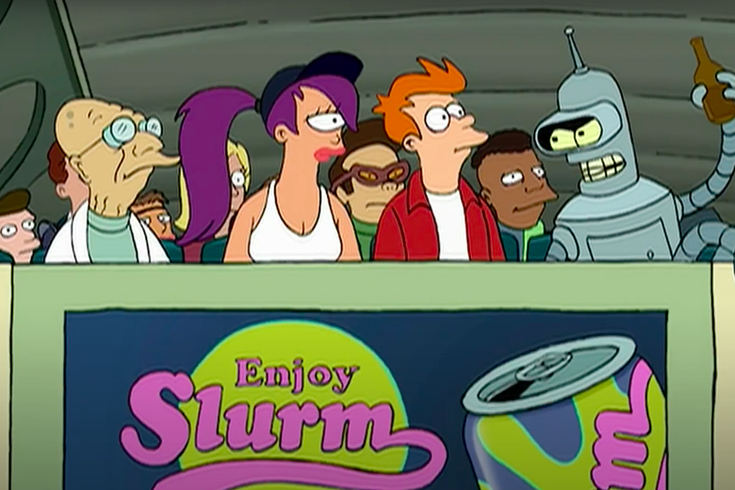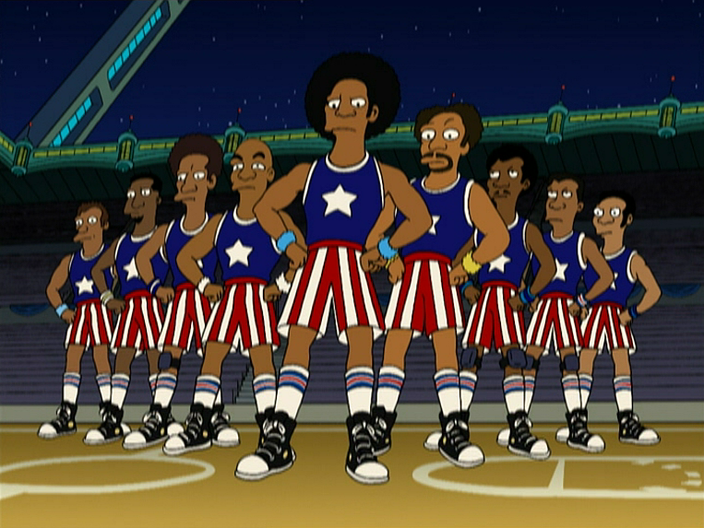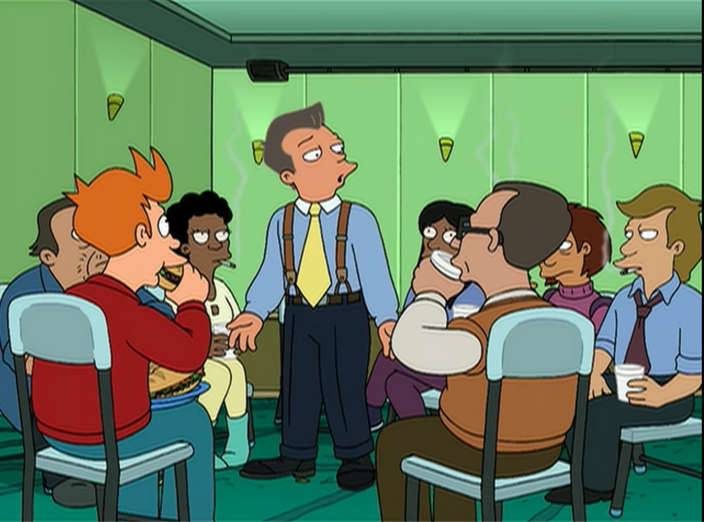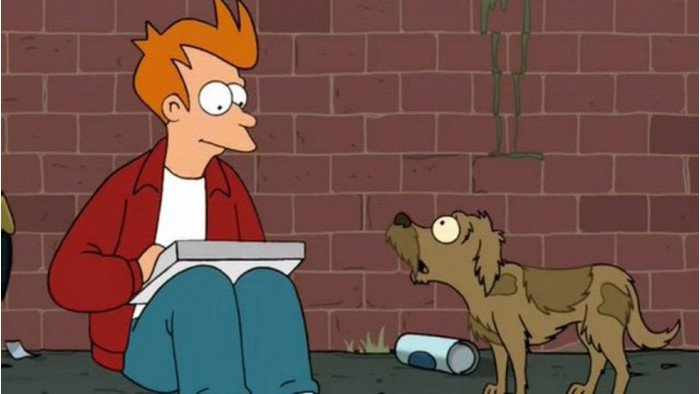
May 28, 2020
 YouTube/Screenshot
YouTube/Screenshot
Professor Farnsworth, Leela, Fry and Bender take in a game of blernsball.
There is just too much TV content out there for you to watch everything. That's where we come in.
We want to help those of you who are considering watching one of the many TV shows available to stream that you haven't had a chance to watch before. If you are on the fence about a show, have had it recommended by friends or are simply curious, we've got you.
Is the show worth it? How should I watch it? And what should I know about the series before diving in?
We've decided to answer those questions, and also provide our suggestions of three episodes to watch first — episodes that best summarize why the show is worth watching to give you a crash course on what makes it great. We are avoiding extremely serialized shows, like Breaking Bad, The Sopranos, The Good Place, and other classics that demand you sit through the entire series start to finish.
So far, we've taken a look at Seinfeld, The Simpsons, Bojack Horseman, It's Always Sunny in Philadelphia, South Park, and Community. Now, we'll turn to another comedy: Futurama, a cartoon journey to the year 3000.
How many episodes are there?
There are 140 in total, although the series' "fifth season" is just four Futurama movies that were produced between 2008-09 and chopped into four four-part episodes.
When does it get good?
Futurama's pilot episode is excellent, enough background to get the ball rolling on a difficult concept without losing sight of the fact that they still need to make you laugh. But the show really began to come into its own toward the end of the first season, picking up steam with classic episodes like "Hell Is Other Robots" that treat robot hell as a thing one might come across in the year 3000.
One issue with doing this retroactively — Futurama famously has a disconnect between the intended production order and sequencing of episodes vs. how they were broadcast and re-packaged by Fox, in addition to region-specific issues. Fox repeatedly moved the show's timeslot around during its initial run in the early 2000s, and conflicts with other events (including sports) led to Fox holding onto episodes from earlier seasons that didn't air and placing them within the fifth broadcast season.
When does it stop being good?
The show ended on a high note the first time it went off of the air in 2003 and remained in purgatory up until Comedy Central picked it up and produced a series of movies that were split up into four-part episodes that ran on the network. With the show still in demand, two more 26 episode seasons were produced, and the revival was not without its misfires.
The good news? Some of the best Futurama episodes ever made, including "The Late Philip J. Fry," were produced during the series' revival, and Groening and Co. managed to come up with a second satisfying finale, quite a feat in a space where creators struggle to manage it once.
Why should I watch it?
Ever heard of a little show called The Simpsons? Matt Groening, the creator of that classic show, teamed up with former Simpsons writer David X. Cohen to create this distant future show around the turn of the century. Turns out the creator of one of the most revered shows of all-time might have some more good ideas floating around.
The show centers around Philip J. Fry, a delivery boy from 1999 who is accidentally thrust into the future in a cryogenic accident on New Year's Eve. Waking up in the year 3000, he yearns for a fresh start but ultimately finds himself working for his distant relative's galactic delivery service, flanked by a beer-fueled robot, a cyclops pilot, a doctor from a crab planet, and an endless cast of side characters ranging from the mundane (Scruffy the janitor) to the insane (Hedonismbot, a robot who lives to be fed grapes from a lounge chair).
That odd cast of characters slowly develops into a dysfunctional family, exploring the ancestry, mating rituals, and origins of each of their main characters across seven seasons. Futurama's version of the year 3000 is as well-realized as the future has ever been, a balance between the dystopian elements of more cynical work and the optimism of a show like The Jetsons, even as the show travels far beyond Earth (and often through time).
While Fry's life experiences are integral in the show's plot, the writers don't allow the show to devolve into a series of, "Back in my day!" rambling. Elements of the late 90s/early 2000s are brought along with Fry — the heads of many notable people from the 20th century are preserved and alive in glass jars in the year 3000, and I regret to inform you cartoon Richard Nixon is still a power-hungry a-hole. Critique of present-day Earth is a constant, but not overly preachy.
As far as shows you can binge-watch go, Futurama is an extraordinarily easy watch. The stakes aren't high enough that you feel the need to press on through the middle of the night to avoid cliffhangers, but it hits all the right emotional buttons to keep you hooked and entertained for an extended period of time. You can easily watch an episode or two a night and have a show to help you unwind for months. Plus, what other show can boast this quote in its first season:
"Who would have thought hell would really exist, and that it would be in New Jersey?"
Where can I watch it?
Futurama is a fairly accessible show. Cable viewers can catch episodes on Comedy Central or SyFy, while Hulu subscribers can watch the full series at any time (it was previously a staple on Netflix). If you're the sort of person who wants to purchase seasons online, that's also possible through services such as Amazon Prime and iTunes.
What three episodes should I watch?
A note before we get started with this list — these season and episode numbers are based on the way they're grouped on Hulu, which as noted above differs from the original production order. The names are the important thing to know here, just be aware that they might be placed differently depending on your service of choice.

In the year 3000, the Harlem Globetrotters aren't just a dominant basketball team, they're an alien race with their own homeworld and travel around the galaxy challenging other planets to beat them at basketball. Led by Ethan "Bubblegum" Tate, they storm Central Park and goad Professor Farnsworth (Fry's aforementioned relative) into accepting the challenge, which he plans to win with a team of super mutants.
That's where things begin to go haywire. Borrowing time acceleration particles to grow his mutants in time for the game, the Futurama universe quickly begins skipping ahead in time, starting in short, inconsequential bursts and eventually spiraling out of control. While time travel fiction is wrought with logical holes and complications that lead many to avoid the subject altogether, 'Time Keeps on Slippin' pokes fun at the very idea that it's a confusing subject.
"Yes, I see. Something involving that many big words could easily destabilize time itself," Professor Farnsworth says while discussing the problem with Tate. Oh right, Tate also happens to be a physics professor at Globetrotter University, for those keeping score at home.
The episode has humor to spare, with numerous sight gags, zingers, and time-travel shenanigans — if a character suggests they have an unrealistic solution to their predicament, odds are there is going to be a flash-forward to their idea rather quickly. At the heart of the episode, though, is the relationship between Fry and Leela (the pilot), which ebbs and flows throughout the series' run and certainly within this half-hour.
Existing in a sort of purgatory for most of the series, Fry somehow manages to win over the one-eyed woman of his dreams, only he can't seem to figure out how, and well, you'll have to watch the rest of the episode to see how it plays out. But between the love story, the far-future Globetrotters, and Bender the robot's pitiful attempts to join the foreign basketball savants, "Time Keeps on Slippin" has something for everyone.

The best one-off character in series history, simply referred to as "That Guy" throughout the episode*, is a parody loosely based on Gordon Gekko in Wall Street, a sleazy 1980s businessman who meets Fry in a support group for people who have been defrosted in the distant future. A key difference — That Guy was frozen on purpose, in the hopes that a cure for his terminal disease "boneitis" would be discovered.
Other stories from the support group are bleaker. One man is from a time where giant carrot people ruled the earth, another a caveman who tears up because his wife's remains are on display at the British Museum of Natural History. But 'Future Stock' is on a mission to mock corporate business culture from the very beginning, even within That Guy's opening speech about the reason he's in the year 3000.
"There was no cure at the time," That Guy says of boneitis. "One company was close, but I arranged a hostile takeover and sold off all of the assets. Made a cool 100 million."
That puts the wheels of the episode in motion, with That Guy trying to build the nearly bankrupt Planet Express up using glossy ads, expensive suits, and corporate catchphrases that Fry struggles to master as he assimilates in business culture. The writers of this episode do a great job of placing That Guy far enough in the parody zone but not too far removed from the average corporate stooge, a hallmark for a series that always has something to say. Despite the far-future setting, Futurama still deals with relatable, 21st-century problems, and you will grow used to watching Fry snatching defeat from the jaws of victory.
Remember — sharks are winners and they don't look back, because they don't have necks. Necks are for sheep.
*In a script for Future Stock, That Guy is given a name: Steve Castle. It feels more appropriate that they never used his given name, as he is an amalgamation of fictional characters and real-life business people who came before him.

Not everyone will get in their feelings over an episode about an alien bee sting. Not everyone will be invested in the many twists and turns of Fry and Leela's relationship, though the episodes built around that duo are some of the best in the series. But if you can watch 'Jurassic Bark' without feeling some sort of emotion, you are an inhuman monster I would struggle to recommend anything to.
When a museum exhibit containing a 20th-century pizzeria opens, Fry stumbles upon the fossilized remains of Seymour Asses, the dog he left behind in 1999. Distraught that his former pet would be turned into a display piece for gawking tourists, Fry stages a days-long protest to the tune of "The Hustle" in front of the museum, eventually getting his best friend back with the hope that future technology may allow them to be reunited in earnest.
'Jurassic Bark' is a foundational Futurama episode on several levels. It combines the use of 20th-century flashbacks, a heart-wrenching story, and the cast dynamics as well as any episode in the series, ending on a note that will hit you deep in your heart if you allow it to. But the events leading to the climax are just as meaningful, and they're a good snapshot of the emotional arcs of Bender and Fry.
While the robotic member of the Futurama crew is often quite crude — he's a petty thief who runs on booze, after all — deep down he is desperate for the attention and affection of his human counterparts, only showing that side of himself when the moment strikes. Fry is a simple man in a complicated world, but his heart is almost always in the right place, putting the people he loves before himself even when it hurts him to do so.
There are other episodes throughout the series that connect on an emotional level, but none have the universal appeal and impact of 'Jurassic Bark.' Bring a box of tissues.
Follow Kyle on Twitter: @KyleNeubeck
Like us on Facebook: PhillyVoice Sports
Subscribe to Kyle's Sixers podcast "The New Slant" on Apple, Google, and Spotify